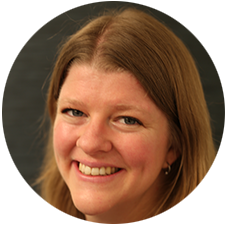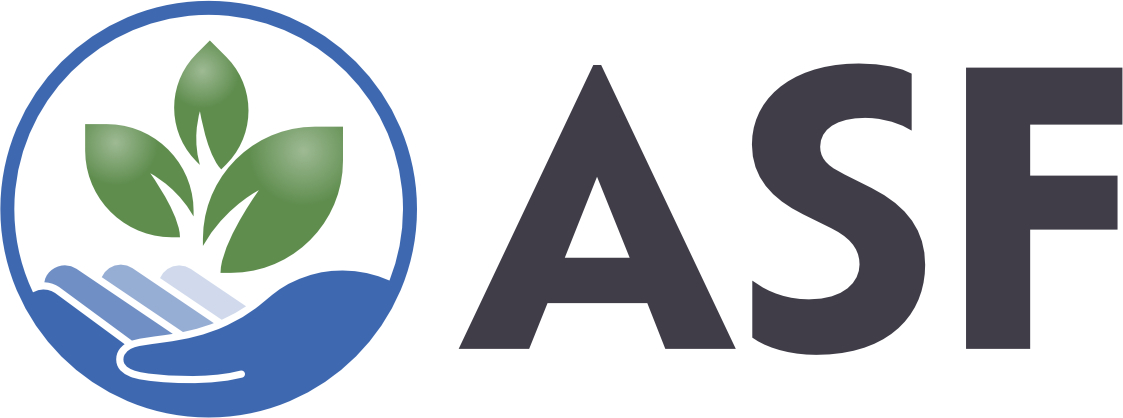Soils24 INSPIRING SPEAKERS
Extraordinary soil science professionals that will energize and motivate you.
Conference Welcome
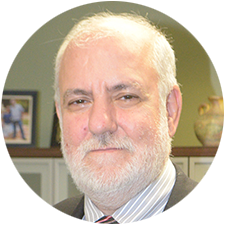
Raúl Macchiavelli is the Dean and Director of the College of Agricultural Sciences and Professor in the Department of Agroenvironmental Sciences at the University of Puerto Rico. He earned his B.S. in Agronomy from the University of Córdoba, his M.S. in Biometry from the University of Buenos Aires, and his Ph.D. in Statistics from Penn State University.
As dean and director of Agricultural Sciences, he oversees around 200 professors, researchers, extension specialists, extension agents, and family and consumer sciences educators. As an applied statistician, he collaborates with many scientists at the Agricultural Research Station, teaches the graduate level Statistical Methods courses, and conducts research in models for longitudinal data.
He has more than 80 publications in a diversity of areas, is active in the International Biometric Society and the American Statistical Association, and has ample international experience in universities and institutions in Latin America and Spain.
Bouyoucos Plenaries
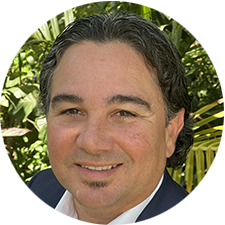
Manuel Matos is the State Soil Scientist, Soil Health and Wetland Team Lead for USDA Natural Resources Conservation Service (NRCS) for the Caribbean Area. He earned his B.S. and M.S. degrees from the University of Puerto Rico in Mayaguez. Manuel began his career with NRCS in January 2004 as a Soil Scientist in Fargo, ND. Manuel has worked in several states, to include ND, WY, MN, FL, and PR. After 5 years in ND, he worked as the Resource Soil Scientist in Thief River Falls, MN providing technical soil services for 13 counties. He served as Acting MN State Soil Scientist and MO Leader in Minneapolis, MN. He had also worked as MLRA Soil Survey Leader in Tavares, FL and supervised a team of scientists to update soil surveys in 34 counties of Central FL. In Puerto Rico, he served for 4 years as the Mayaguez MLRA Soil Survey Office Leader, supervising a team of soil scientists working updating soil surveys for Puerto Rico and US Virgin Islands. Manuel has participated in several details for soil survey activities in Wyoming and Minnesota, where he completed initial soil surveys. He has also been appointed for international assignments assisting in the soil survey capacity building in Haiti, training to in Soil Taxonomy to Argentinian Soil Scientist, and nutrient management-soil health training St. Vincent and the Grenadines agriculture extension agents.
Manuel has worked closely with NRCS Leadership and Civil Rights Committees across the nation and has made significant contributions to recruiting, hiring, and retention of NRCS employees nationwide. He was a recipient of the “Nopal” Award in 2006, NOPHNRCSE Outstanding Member Award, the ND Civil Rights Award, the National Civil Rights Group Award in two instances, the recipient of the 2018 USDA Under Secretary Honors Award, and served as a presenter in multiple conferences and on multiple committees.
Manuel is a licensed Agronomist and a member of the Puerto Rican Society of Agricultural Sciences (S.O.P.C.A), Lifetime Member of the National Organization of Hispanic NRCS Employees (NOPHNRCSE), the Agronomist Board of Puerto Rico, the Professional Soil Classifier Association of North Dakota (PSCAND) and the Soil Science Society of America.
Manuel is a native of Puerto Rico, currently living in the coast of Cabo Rojo, PR with his wife and their three joyful children. An enthusiastic sailor, skateboarder, and mountain biker.
"An Overview of the Soils of Puerto Rico"
The pedologic diversity of Puerto Rico formed from a tropical climate, a gradient of elevations, and geomorphic landforms resulting from a wide range of parent materials. The functional relationships and the opportunity of multiple combination of soil forming processes creates the recipe for an ecological network that host 10 of the 12 soil orders of the Soil Taxonomy (all except Andisols and Gelisols). The islands of Puerto Rico are divided in 4 Major Land Resources Areas: The Humid Mountains and Valleys, the Humid Coastal Plains, the Semi-Arid Mountains and Valleys and the Semi-Arid Coastal Plains. Today, Puerto Rico’s pedologic diversity is represented by 219 official series descriptions. The official series descriptions are distributed by order as follows: 45 Inceptisols, 36 Mollisols, 29 Ultisols, 24 Oxisols, 19 Vertisols, 17 Alfisols, 20 Entisols, 15 Aridisols, 11 Histosols, and 3 Spodosols. The year-round growing season, the relatively well distributed rainfall, and good physical and chemical properties make soils very suitable for agriculture production. Currently, Puerto Rico’s soils face many challenges such as soil erosion, loss of prime and statewide import farmland, loss of coastal plain soils due to sea level rise and salinization, and the acidification of acid sulfate soils in the coastal lowlands.
Rebecca Lybrand is an Associate Professor in the Department of Land, Air & Water Resources at UC Davis. Dr. Lybrand earned a B.A. in Biology from Whittier College; a M.S. in Soil and Water Science from UC Riverside; and a Ph.D. in Soil, Water & Environmental Science from The University of Arizona. Dr. Lybrand started as an Assistant Professor at Oregon State University in 2015 before moving her program to UC Davis in 2020.
Dr. Lybrand specializes in pedology, soil mineralogy, and the study of soil-landscape relationships under contrasting environmental conditions. Dr. Lybrand’s research program provides new perspectives on the interplay of soils, climate, and landscape evolution through 1) hillslope to nanoscale investigations of soil biogeochemistry and mineral weathering in the Critical Zone, with a specific emphasis on 2) quantitative pedological studies in the western US.
Dr. Lybrand has authored or co-authored 21 refereed journal articles including 15+ as primary author or student-led publications (i.e., Scientific Reports, Earth-Science Reviews, Geoderma, JGR Biogeosciences). Dr. Lybrand was awarded the SSSA Pedology Division Award for “Advancing Pedology” in Fall 2021 and was recently the recipient of an NSF CAREER grant. Dr. Lybrand teaches Soil Genesis, Morphology and Classification; Field Studies of Soils in California; and a novel Extraterrestrial Soils course that she developed as an introductory science course for non-majors in 2022.
Dr. Lybrand is currently serving as an elected Fundamental Soil Science Group Board Representative for SSSA (2023-2025). Dr. Lybrand also served as Chair of the Soil Science Society of America’s Mineralogy Division (2017-2019).
"Connecting Soils to Life on Earth and Beyond"
Pedology, or the study of soil in the natural environment, spans scales, disciplines, and societies worldwide. A pressing need exists to more strongly incorporate the study of soil, and soil scientists, into research networks, initiatives, and collaborations. This presentation will touch on three research areas centered on conservation planning, nutrient cycling, and the exploration of extraterrestrial surfaces as demonstrative examples where a stronger integration with soil science is needed. We will explore research activities pertaining to the following questions: 1) How do the properties of soil influence the selection of habitat and survival by organisms, especially threatened and endangered species struggling in the face of climate change and habitat loss during the Anthropocene? 2) How do we disentangle the heterogeneity of abiotic and biotic processes that transform minerals and release life-supporting nutrients to soil, especially at the nano- to microscale where mineral-water-microbe interactions occur? and 3) How can soil science advance the search for life and habitable environments on Mars and beyond- from distinguishing biosignatures to better utilizing terrestrial analogs on Earth for planetary exploration? This work highlights the critical role of cross-scale soil science research in the Critical Zone.
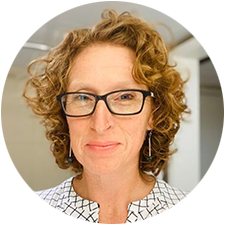
Karen Vaughan has long been fascinated by color. The information we gather from color, the way it makes us feel, and the way we all connect with color in our own unique ways. She is an associate professor of pedology at the University of Wyoming as well as an artist, paint maker, fiber enthusiast and so much more. Karen is a classically trained pedologist whose research traverses applied environmental biogeochemistry and pedology through the exploration of soil evolution and ecosystem processes across scales. She also works collaboratively to explore the distribution and implications of diversity and inclusion within the field of soil science. Karen dedicates time to sharing soils information across a variety of platforms because she feels strongly about the importance of effectively communicating science and the role scientists play in science delivery to the public. She is a community-taught pigment forager and paint maker and through her deep connections with the earth – is thrilled to be on this journey with all the other movers, shakers, creatives, and doers. When not working with soils, pigments, and paint – she can be found traversing the trails of southeastern Wyoming while trail running or wandering the seas with her two children and husband.
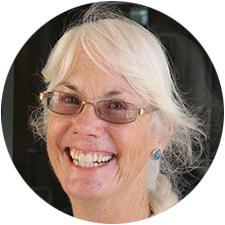
April Ulery is a Professor of Soil Science in the Plant and Environmental Sciences Department at New Mexico State University. Her interdisciplinary research program addresses both agricultural productivity and environmental contamination of soil. She teaches a wide range of classes including Introductory Soils, Environmental Soil Chemistry, and Response to Hazardous Materials Spills (equivalent to the OSHA 40-hour training course). She has received several teaching, advising, and mentoring awards and was the department’s first Professor of Exemplary Teaching. Dr. Ulery is a Fellow of the Soil Science Society of America and a former President.
She earned her B.S. degree in Geology from the University of Redlands and her M.S. and Ph.D. degrees in Soil Science from the University of California, Riverside. She has worked as an environmental consultant, a community college instructor, and she conducted post-doctoral research at MIT and at the USDA ARS Salinity Laboratory.
"Teaching and Communicating Soil Science Across Disciplines"
Soil science is the ultimate cross- and interdisciplinary subject matter as soil itself is comprised of physical, chemical, and biological components that contribute to its formation and behavior. In order to optimize and protect the ecosystem functions and services that soils provide, it is important to understand and be able to communicate with scientists, students, and stakeholders in diverse disciplines that interact with soil. The study of soil spans several disciplines from agriculture to environmental remediation to art and economics. People who work with soil range from gardeners to technical practitioners to academics – and communication at such varying levels can be a challenge. Since this plenary is about soil education and outreach across disciplines, I will provide examples of teaching, mentoring, and outreach exercises that may help improve collaboration and communication.
Ready to Dig Deeper?
View additional innovative speakers and sessions via the Preliminary Program.
2024 Puerto Rico Online Program


